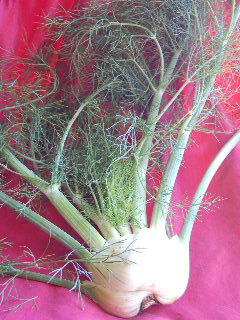
Fennel is a great plant to try in your home gardening efforts if you want to go for something that is different in appearance, nutritionally beneficial in your diet, and fairly easy to grow.
This herbal plant is originally from the Mediterranean area and is much used in the cuisine of that area as well as in Italian dishes.
Fennel is a vegetable in the carrot family with a similar crunchy texture and, like the carrot, it can be consumed raw or cooked.
The stalks and bulb of the fennel plant can be chopped and stir fried/sauteed in olive oil or butter with onion and other vegetables to make a delicious and nutritious side dish or even as a main course in a healthy diet.
The feathery top leaves can also be cooked into dishes or chopped and added into salads.
In terms of nutritional value, fennel is rich in Vitamin C, calcium, and iron. It’s a good source of antioxidants and helps add fiber into the diet.
Other important nutrients found in fennel include potassium, magnesium, iron, copper, phosphorus, and manganese.
The nutritional and medicinal benefits of fennel were discovered in the early days of Chinese medicine, whose practitioners found the addition of fennel to be helpful in relieving discomfort caused from stomach ache, insect bites, food poisoning, and sore throat.
Fennel is also said to stimulate the production and flow of breast milk in lactating females.
Add fennel into your home garden by planting the seeds directly into the soil after all danger of frost has past.
Sow into a sunny, well-drained location allowing plenty of room for the plants to grow and spread, as they can reach up to three feet or more in height.
The soil should be rich in organic matter and the site should not be allowed to dry out as the season warms, as this might cause the growing stems to bolt.
Other than these basic considerations, fennel is a low maintenance “food plant” you might enjoy adding to your home garden as well as to your kitchen and dining table.